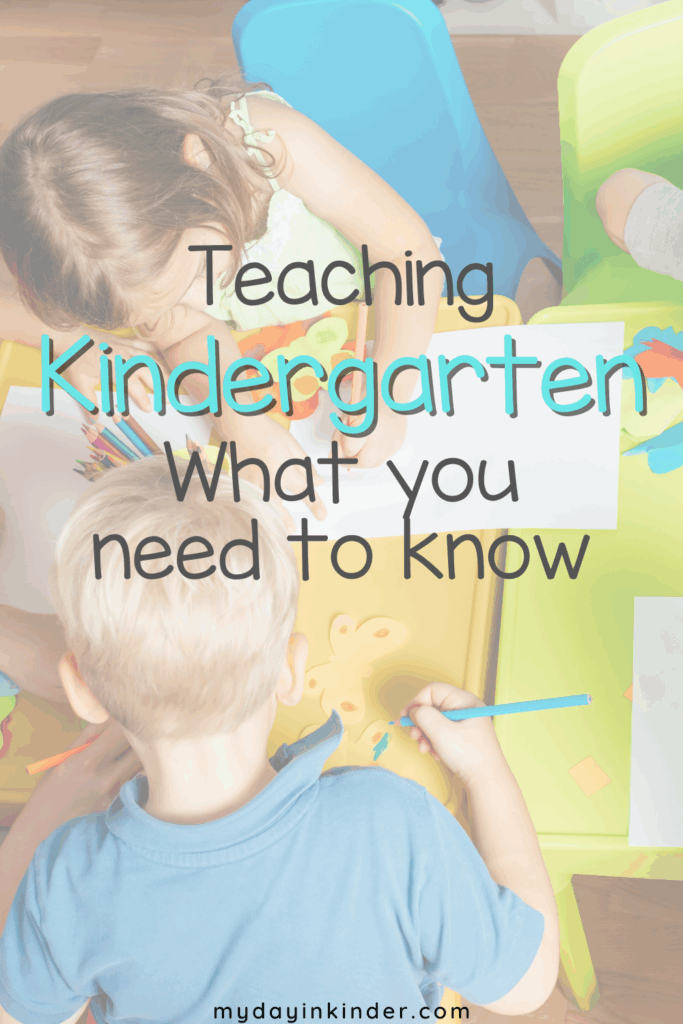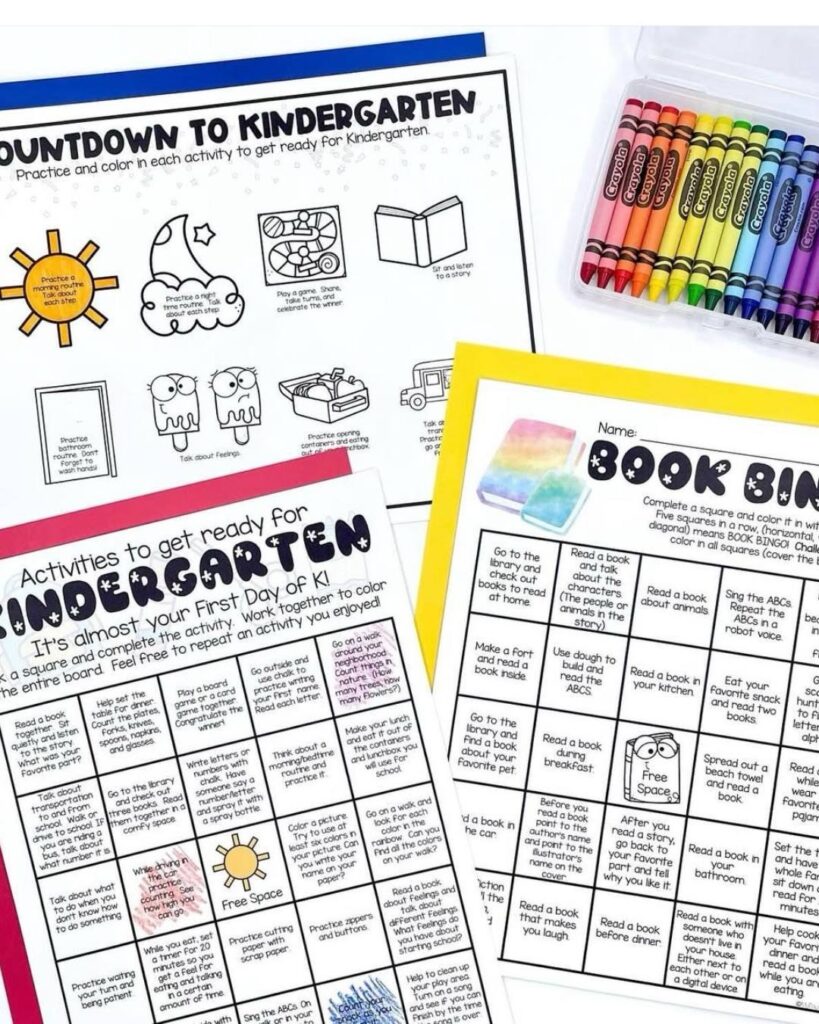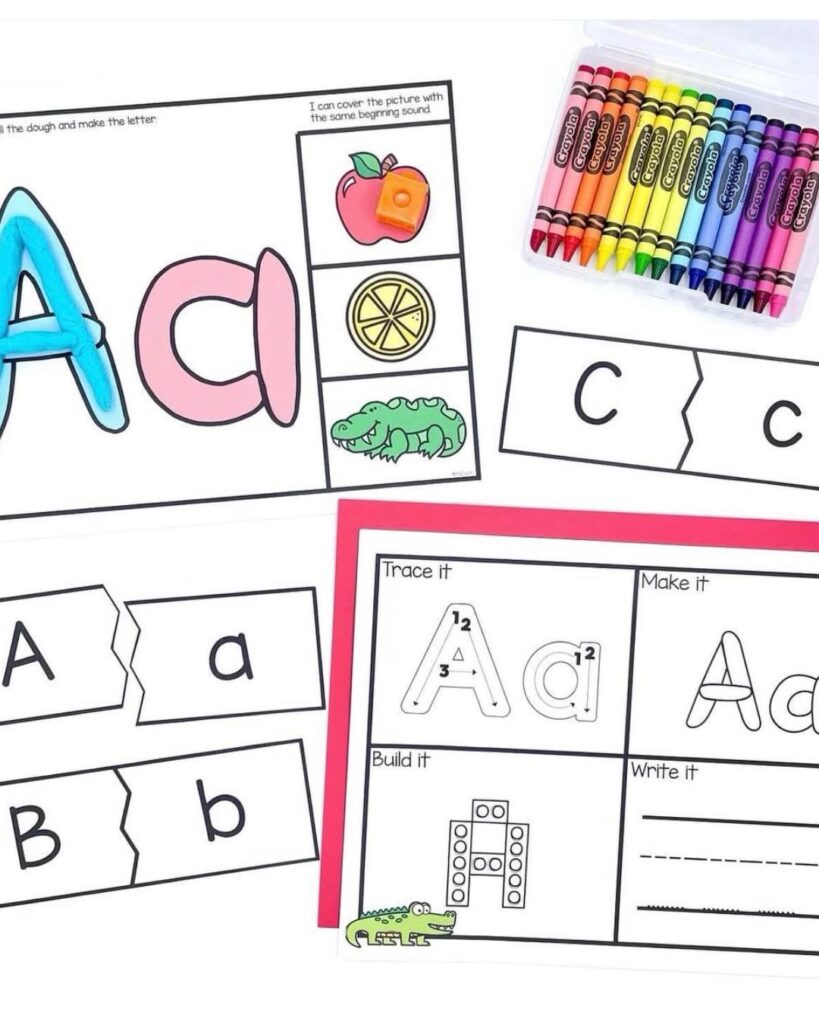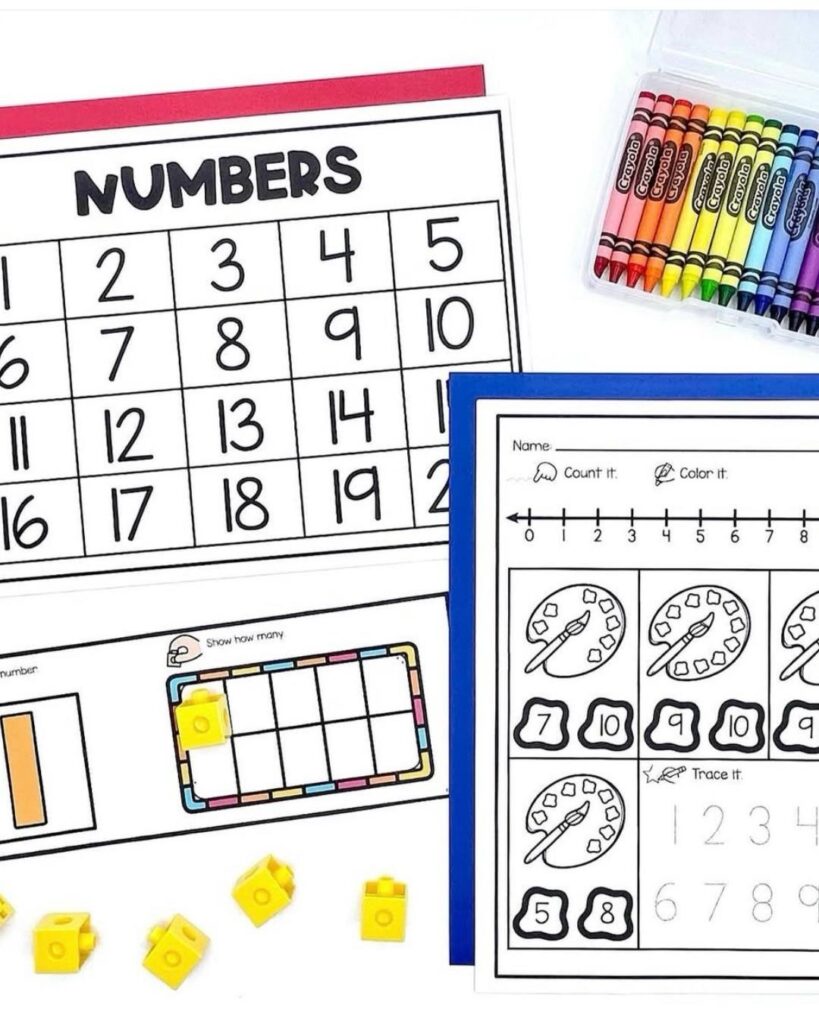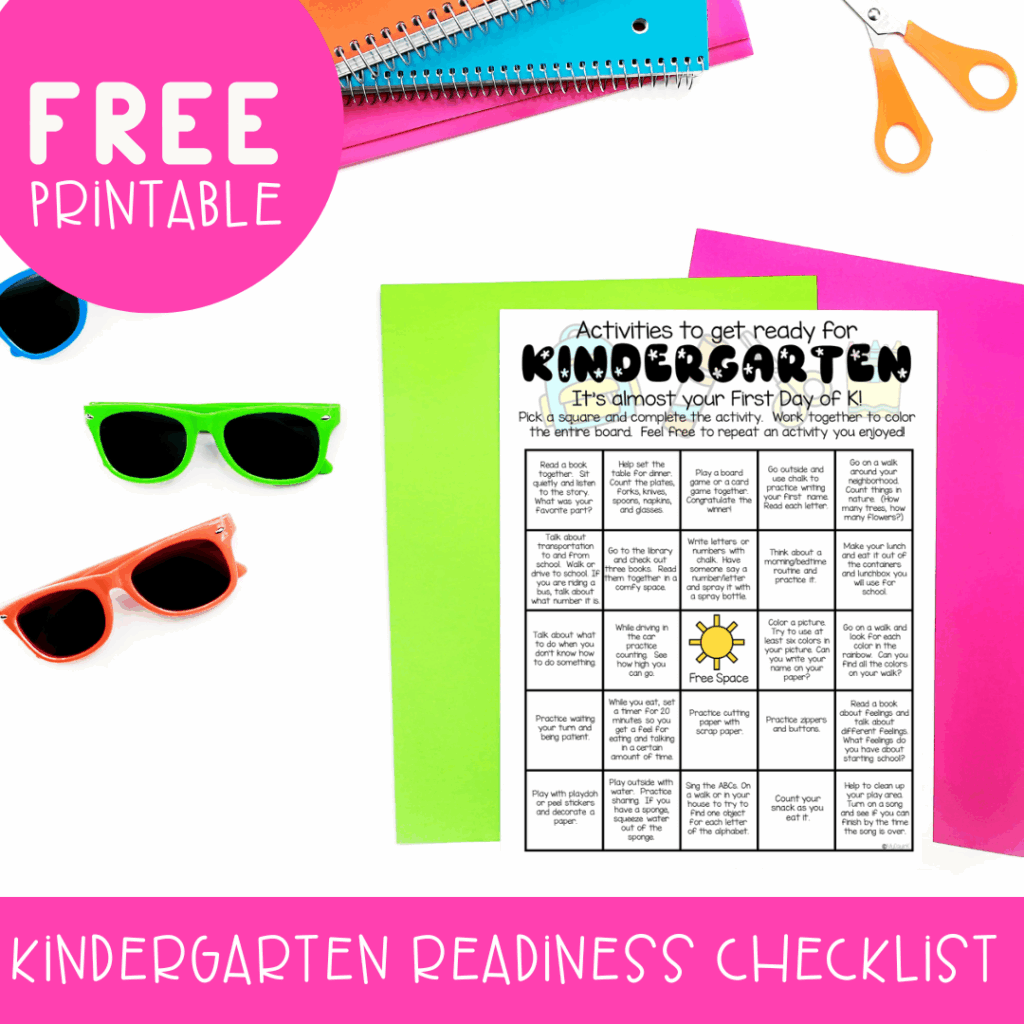So You’re Teaching Kindergarten: What You Really Need to Know
Hey there, teacher friend! Whether you’re brand new to teaching or making the leap from another grade level into kindergarten, welcome to the wild, wiggly, and wonderfully rewarding world of teaching kindergarten! This isn’t just another grade. It’s a whole different ball game.
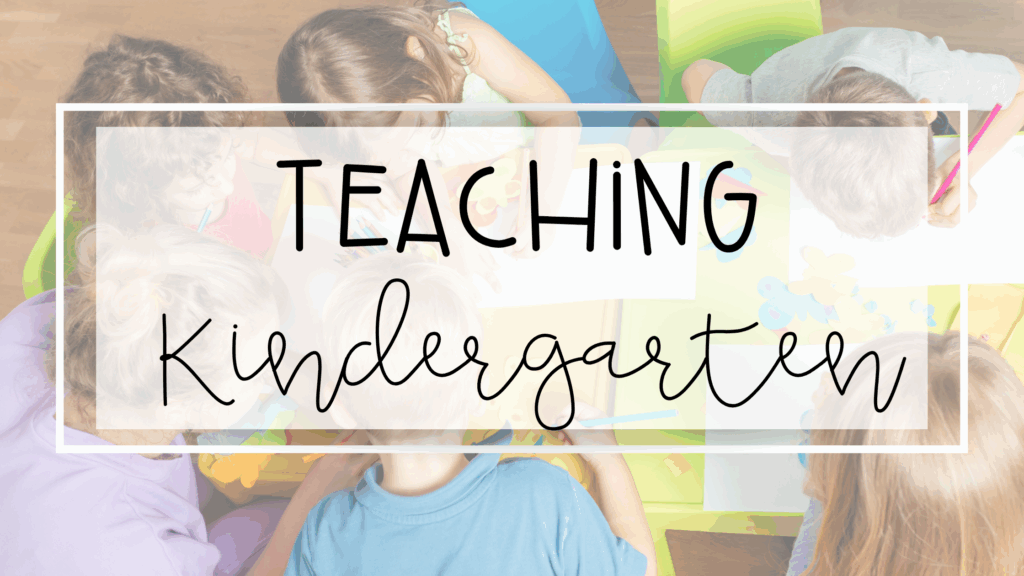
Kindergarten is where routines are built, independence blooms, and yes, sometimes there’s a little bit of crying (from students and teachers, we’ve all been there). If you’re feeling excited, nervous, overwhelmed, and a little panicky all at once. Yep, you’re officially in the right place.
Let’s just start here: you are not alone.
This post is for the educators who are staring at their soon-to-be classroom wondering, “What do I actually need to teach these tiny humans?” The good news? You don’t need to transform your classroom into a miniature Ivy League. What kids need most in kindergarten isn’t academic pressure. It’s support building foundational life skills.
Let’s dive into the stuff that really matters, shall we?
What Should You Actually Focus On?
If you’ve been wondering whether you should spend the summer memorizing phonics strategies or creating an alphabet jungle gym, take a deep breath and pause.
Here’s the truth: as kindergarten teachers, we know that when those sweet kiddos come through our doors, they’ll all be in totally different places. Some will know how to read. Others will barely know how to sit in a circle. While some will call you “Mom” by accident. (Just roll with it.)
And that’s okay.
What we really need to focus on is helping kids feel confident navigating their day. That means building independence, learning routines, and developing social-emotional skills that will support them in every academic area later.
Here are the life skills that make a HUGE difference at the beginning of the year:
- Sitting and listening to a short story
- Going to the bathroom independently & washing hands
- Talking about feelings (and using words when upset)
- Cleaning up after themselves
- Using manners—simple phrases like please and thank you
- Following one- and two-step directions
- Practicing a morning & bedtime routine
- Taking turns & sharing
- Having conversations during snack or lunch
- Making eye contact with the speaker
- Zipping their own jacket (or trying their best!)
Will every kid master all of these by day one? Absolutely not. But knowing that these are the skills to look out for will save you so much energy that might otherwise be spent stressing over pencil grips and letter sounds right out of the gate.
Let’s Talk Reading & Writing
Yes, we teach letters and sounds in kindergarten. No, they don’t need to arrive knowing it all. What they do need is a spark. A love for stories, curiosity about print, and strong little hands ready to build writing muscles. As a teacher, here’s what you can focus on to build early literacy without turning your classroom into a boot camp:
- Read aloud daily. Books are magic. Talk about the characters, ask questions, laugh together, and let them retell the story.
- Sing songs and rhymes. Rhyming builds phonological awareness, and singing helps with memory and fluency.
- Play with letters. Use magnetic letters, sidewalk chalk, or sensory bins. Make it playful!
- Focus on fine motor skills. Writing doesn’t start with worksheets—it starts with coloring, cutting, stringing beads, using Play-Doh, and yes, squeezing water out of sponges.
Strengthening little hands now makes everything else easier later. Forget the perfect pencil grip. Just get them exploring with their fingers and building strength!
Don’t Stress Over Math
Math in kindergarten isn’t about memorizing times tables. It’s about learning that math is everywhere. Seriously. Everywhere.
Here are natural, easy ways to introduce early math concepts:
- Sing counting songs. Think: Five Little Monkeys, Ten in the Bed.
- Count real-life objects. Snack time, steps, toys, use them all.
- Play simple games. Board games help with turn-taking and counting.
- Sort and classify. Have them organize blocks, pom-poms, socks, or anything else!
- Explore measuring. Whose block tower is taller? Which bucket is heavier?
The goal is for kids to feel comfortable exploring numbers, not to turn them into mini mathematicians by September.
Teaching Kindergarten 101
Here’s the deal: you set the tone. Your patience, your encouragement, your ability to see every small win and celebrate it—it’s everything in kindergarten.
So don’t let the pressure of “kindergarten readiness” get to you. Let go of perfection. Embrace the chaos. Expect the unexpected (because someone is definitely going to pee their pants the first week, probably while you’re reading The Kissing Hand).
And know this: you are about to become one of the most important people in a child’s life.
You’re going to wipe tears, tie shoelaces, give pep talks, teach how to share, and remind them to flush. And in between all that, you’ll also be shaping their love of learning.
Welcome to teaching kindergarten. You’ve got this.
Tackle Kindergarten readiness with this fun-filled comprehensive Kindergarten Summer Packet full of fun and engaging activities to prep your Pre-K students for a successful Kindergarten start. This NO PREP Print & GO summer packet is full of essential Kindergarten Skills & Activities in
- Math
- Literacy
- Fine Motor skills
- Life Skills
Sign up now to get your FREE Kindergarten Readiness Checklist & Bingo Board! Prepare your little one for their big school adventure with fun and engaging activities.
Why get started this summer? Because early learning is a game changer!
